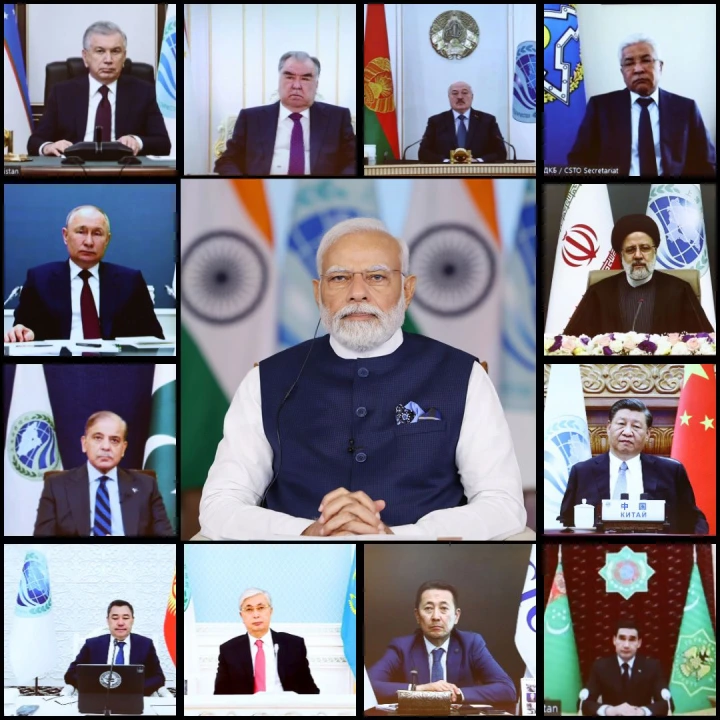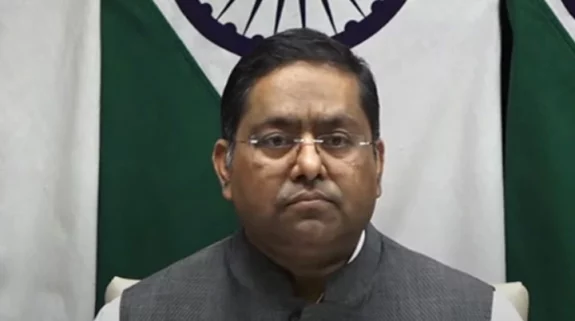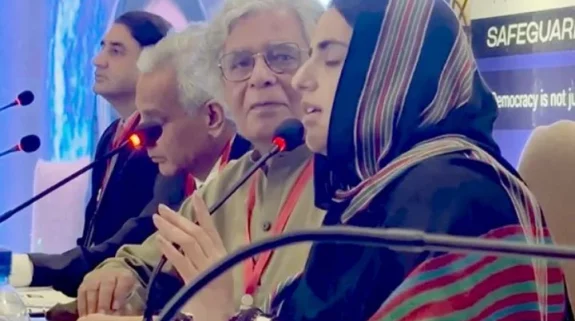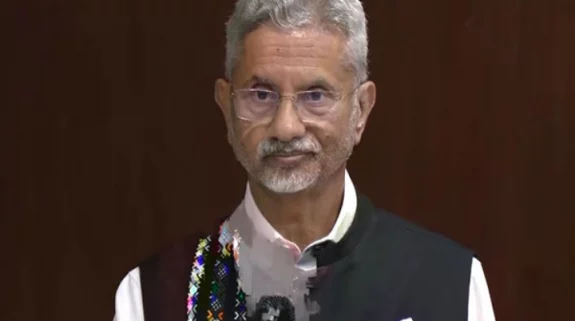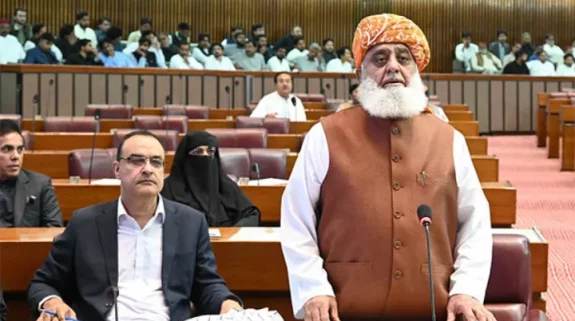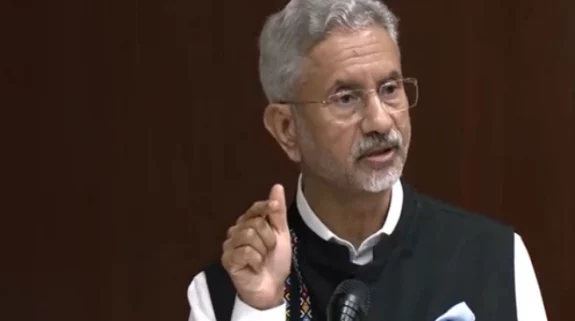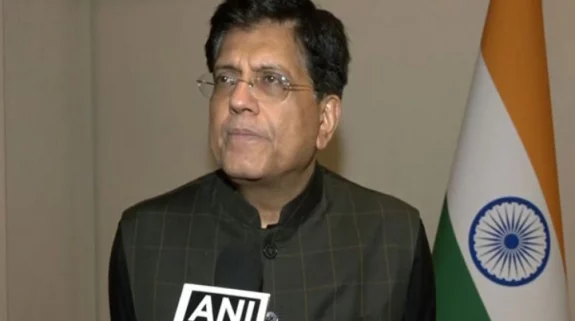India chaired the SCO summit in difficult diplomatic circumstances. A virtual summit was unavoidable. India and China remain locked in a military confrontation on the border. If Xi had physically attended the summit but no bilateral meeting had taken place, the diplomatic repercussions would have been negative for both sides. If a meeting did occur and no contours of a solution to the current stand-off emerged, that would have been worse, as an opportunity to address and resolve the issue at the highest level would have been prematurely exhausted. In any case, China made no moves before the summit to ease tensions, as the visits of both the Chinese Defence and Foreign Ministers produced no new de-escalatory move.
In the case of Pakistan’s PM Sharif similar concerns would have been at play. Given Pakistan’s intransigence on the issue of Article 370, Sharif, already embattled domestically, could not have risked a dialogue with his counterpart without political repercussions back home. Feeling the pressure to match the performance of Bilawal Bhutto when he came to India for the SCO Foreign Ministers meeting, the urge to speak to the Indian media to score propaganda points would have been strong.
President Putin too might have found the timing of the summit problematic after developments at home involving an abortive military rebellion by the Wagner chief Prigozhin against Russia’s top military leadership.
In any case, with the G20 summit in New Delhi in September, at which Putin and Xi would be expected to attend, having to visit India twice in the space of a few months may have favoured the idea of a virtual SCO summit. In the case of Xi, though, if there is no forward movement on the outstanding post 2020 friction points already under negotiations at the military and diplomatic levels, the political risk of a potentially unproductive Modi-Xi meeting, or no meeting at all, would still need to be weighed by both sides.
India’s tense relations with China and Pakistan and the anti-India dimension of the close collaboration between these two countries are serious road blocks in forging stronger collective bonds within the SCO. The strengthening strategic partnership between China and Russia, and the increasingly adversarial ties of both with the US with which India is becoming strategically closer, not the least with the China threat that New Delhi and Washington have in mind, coupled with US pressure on India to dilute ties with Russia, the cards in the SCO are mixed for India. With Iran now becoming a full SCO member, the organisation has acquired a stronger anti-US complexion.
President Raisi: Benefits of #Iran‘s official membership in #SCO will remain in history
I hope that Iran’s presence in this important and influential organization will provide a platform for collective security, lead to sustainable development, and expand links and communications pic.twitter.com/wT9feJpNkC— IRNA News Agency (@IrnaEnglish) July 4, 2023
India has vital interests as an Asian power to keep a firm foot inside the SCO door. China, already dominant in the SCO, will increase its influence further within the organisation if India were to disengage itself from it. With China’s reinforced ties with Iran, its weight within the SCO has already grown. The uncertain situation in Afghanistan, concerns about extremism, radicalisation and separatism, and our partnership with the Central Asian states, require India to be an active SCO member. Those who believe India is an odd country out in the SCO and that our choices should be West oriented ignore the big picture of our geographical situation and our regional challenges, and should understand that the road to multipolarity in Asia which we seek will not be advanced if we distance ourselves from the SCO.
India, as current SCO Chair, has given the right amount of attention to the organisation. In his speech at the summit Prime Minister Modi recalled that the theme of India’s chairmanship was SECURE, which stood for Security, Economic development, Connectivity, Unity, Respect for sovereignty and territorial integrity, and Environmental protection- all issues that are at the core of G 20 too. With this in view, India initiated five new pillars of cooperation within the SCO: Startups and Innovation; Traditional Medicine; Youth Empowerment; Digital Inclusion; and Shared Buddhist Heritage.
PM Narendra Modi floats the concept of SECURE at SCO Summithttps://t.co/mIXraijbPA pic.twitter.com/ShVT2ddGla
— Zee News English (@ZeeNewsEnglish) June 10, 2018
Under its chairmanship, India, he said, had hosted more than one hundred forty programmes, conferences, and meetings, besides organising fourteen Ministerial-level meetings. India had added new and modern dimensions to SCO cooperation such as : Cooperation on emerging fuels in the energy sector; Collaboration on de-carbonization in the transportation sector and digital transformation; Cooperation in the field of digital public infrastructure.
Looking ahead, Modi asked the question whether the SCO was evolving into an organization that was fully prepared for the future, which implies India’s interest in giving it greater depth and adapt it to meet future needs and challenges. Consequently, India backs proposals for SCO reforms and modernization.
India has been raising the question of including English as a working language in SCO for ease in discussions and propagation of its documentation internationally. Modi offered to share India’s AI-based language platform, Bhashini, to remove language barriers within the SCO. The SCO could also become, he said, an important voice for reforms in global institutions, including the UN, an objective to which India attaches great importance, but on which the SCO pays only lip service as both China and Pakistan oppose India’s bid for permanent membership of the UN Security Council, which will ensure multipolarity in Asia.
India has been drawing attention to the problem of terrorism in all international and regional forums as well as bilateral engagements. Modi raised the issue of terrorism in his remarks, underlining that it had become a major threat to regional and global peace. He called for unity and decisive action against this threat. He did not miss the occasion to point a finger at Pakistan by stating that “Some countries use cross-border terrorism as an instrument of their policies, provide shelter to terrorists” and called on the SCO not to hesitate to criticize such nations. With China in view, he said “There should be no place for double standards on such serious matters.”
#Watch: Decisive actions are necessary to fight terrorism. Some countries use cross-border terrorism as an instrument for their policies and provide shelter to terrorists. SCO shouldn’t shy away from criticizing such countries: PM Modi at SCO summit https://t.co/mLUt939Zis pic.twitter.com/WtKEOfvB0c
— INDIA NARRATIVE (@india_narrative) July 4, 2023
Strong connectivity being crucial for the progress of any region, Modi pointed a finger at both China and Pakistan by stating that it was essential to uphold the basic principles of the SCO charter, particularly on respecting the sovereignty and regional integrity of the Member States. He mentioned, of course, following Iran’s membership in the SCO, the need to work towards maximizing the utilization of the Chabahar Port and developing the International North-South Transport Corridor.
All in all, India has managed its SCO Chairmanship very well, against many odds.
Also Read: India concludes a successful presidency with the SCO Summit






